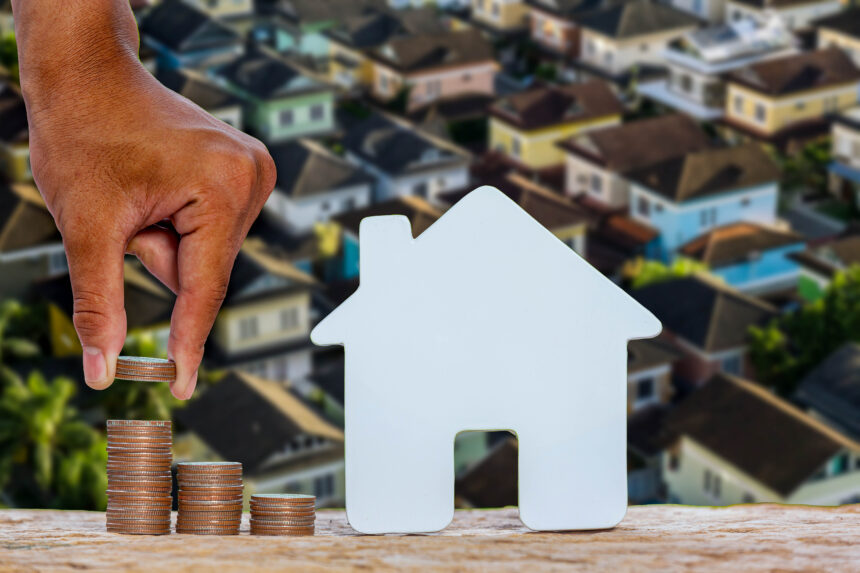by Conrad Onyango
A wave of government housing policies is set to change the urban landscape across the continent, in line with a report from the African Development Bank (AfDB).
“The public sector is recognizing the link between housing and economic growth, and that not only can good housing contribute to the twin goals of economic growth and poverty alleviation, but that the opposite is also true: poor housing can undermine economic growth and exacerbate poverty,” argued researchers in the AfDB’s 2023 report, Promoting Affordable housing in African cities.
After gaining independence, African governments and development financiers played a significant role in providing small housing units for the masses, South Africa’s post-Apartheid government, for example, provided some two to three million small homes for the poor and landless. However, housing policies then stalled, leaving a huge backlog. Nigeria alone has recorded a backlog of some 17 million units.
With rapid urbanization and the emergence of a growing middle class, governments are once again targeting housing policies, and this time, private developers are being encouraged to support the rollout of mass-market, high-rise units.
“The next frontier for the growth of affordable housing in Africa, therefore, is to build the investment argument, because this argument will ultimately create potential for affordable housing at the scale required,” the AfDB report added.
Kenya, with a population of over 50 million, recently passed the Affordable Housing Bill 2023, allowing the government to begin deductions of a 1.5% monthly housing levy from salaried and other income-earning Kenyans.
The collections, which started in June 2023, had been halted following a court battle over the legality of the deductions.
The new law establishes an Affordable Housing Fund to be managed by a national board that will award an individual beneficiary a single allocated unit. The law also allows beneficiaries to get a mortgage to develop an affordable housing unit in a rural area using their land as collateral.
Housing and Settlement is one of the pillars of President William Ruto’s Bottom-up Economic Transformation Agenda (BETA), which aims to turn the housing crisis into an economic opportunity by increasing the supply of new houses to 250 000 per annum and the percentage of affordable housing supply from 2% to 50% by 2027.
In the country’s capital, Nairobi Governor Johnson Sakaja has tabled a proposal to remove floor limits in residential housing areas to allow landlords to build blocks of up to 25 floors and, in other areas, skyscrapers of up to 75 floors.
“Nairobi is 696 square kilometres. In 2050 it will have a population of 10.5 million people. Will we expand Nairobi? No the only place we have to go is up,” Sakaja was quoted by the local media.
The previous Kenyan government regime had targeted the supply of up to 500,000 low-cost housing units over five years but failed to reach its target.
South Africa is also reviewing its social housing policy to redefine the role of government and non-governmental organisations in human settlements to increase the supply of rental and social housing stock.
In March 2024, South Africa’s Department of Human Settlements (NDHS) said it has proposed new approaches to human settlement including rent-to-buy options for affordable housing.
“These different approaches will further be strengthened by the adoption of Alternative Building Technologies (IBT), which can further enable economic opportunities across the different provinces, while accelerating service delivery,” said the department in a statement.
The department focuses on three key housing delivery programmes – the Integrated Residential Development Programme (IRDP), the Informal Settlements Upgrading Programme and the Affordable Rental Housing Programme.
The changes will review income bands for social housing eligibility, with households earning a monthly income between R1,850 (US$98) and R22,000 (US$1,168 ) to be targeted, according to Housing Finance in Africa Yearbook: 14th Edition – 2023.
While the department delivered 300, 000 houses in the past five years, South Africa’s housing backlog stood at over 2.4 million households in 2023, according to the National Housing Needs Register.
Nigeria is also reviewing its housing policies to align with the Renewed Hope agenda of President Bola Ahmed Tinubu- which seeks to offer the country a strategic vision and direction for urban development.
That vision is “aimed at improving the living conditions of Nigerians through Urban Renewal and the development of New Towns” according to a recent statement by Nigeria’s Federal Ministry of Housing and Urban Development.
The Nigerian Central Bank estimated in 2018 that US$46.7 billion (₦35.5 trillion) would be needed to address the country’s housing deficit.
In Ethiopia, changes to the country’s housing policy seek to reduce the proportion of government-owned land to 30% from 95% to give the private sector a bigger opportunity to develop more housing units.
In Addis Ababa, a Public-Private Partnership Scheme comprised of 68 developers (both foreign and local) is geared towards incentivising the delivery of affordable houses. Private Sector players will finance and build homes, keeping 70% of them for sale and the remaining 30% will be allotted to the government in order to prioritise lower-income individuals.
“The project will relieve strain on the government’s affordable housing program, which has struggled to deliver more than 20% of demand for more than 13 years. It will also open greater private sector involvement which currently has enormous untapped potential,” The Africa Housing Finance in Africa Yearbook 2023 explained.
Ethiopia produces 160 000 formal housing units annually nationwide but this falls far short of the almost half a million needed to address the growing backlog.
bird story agency





